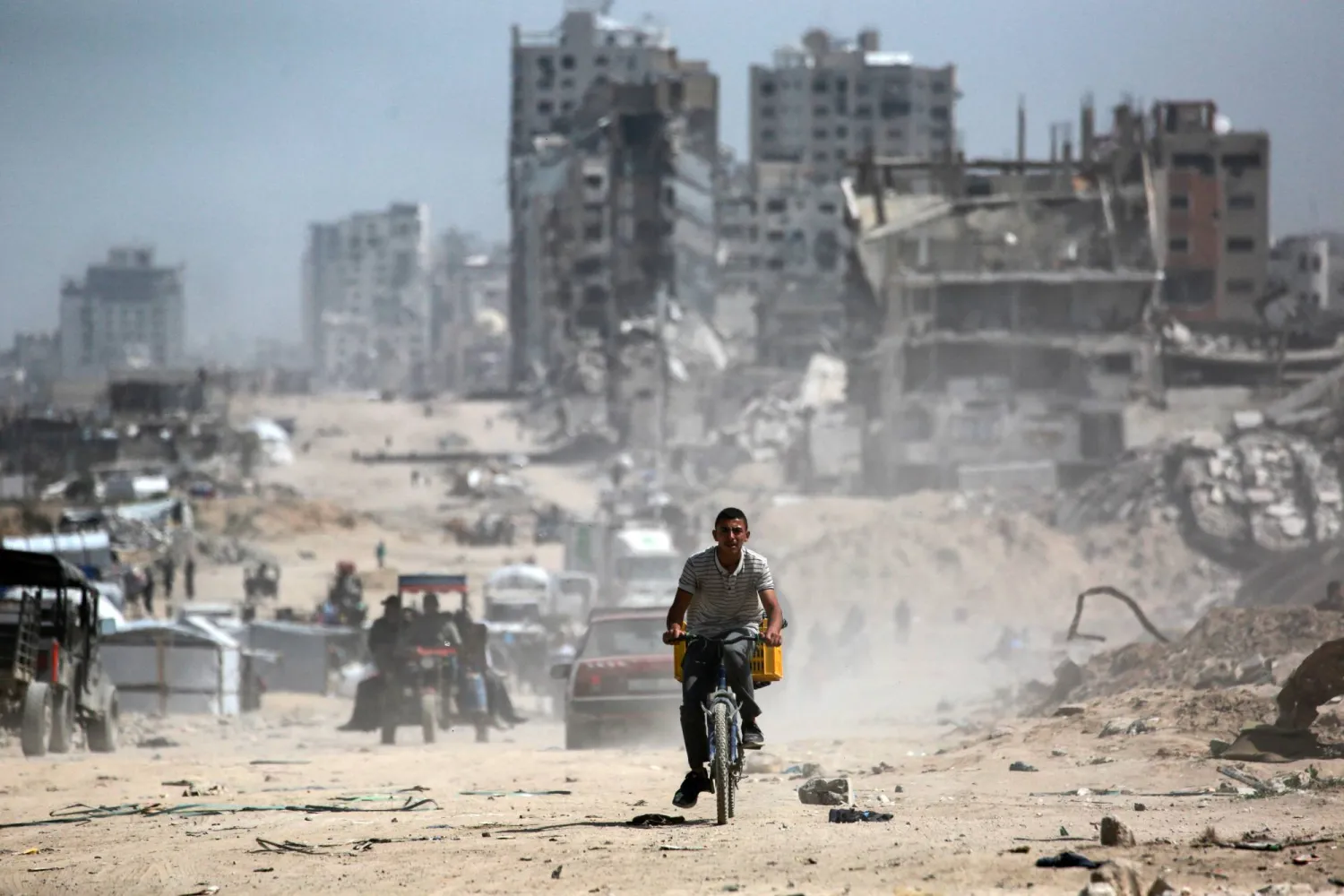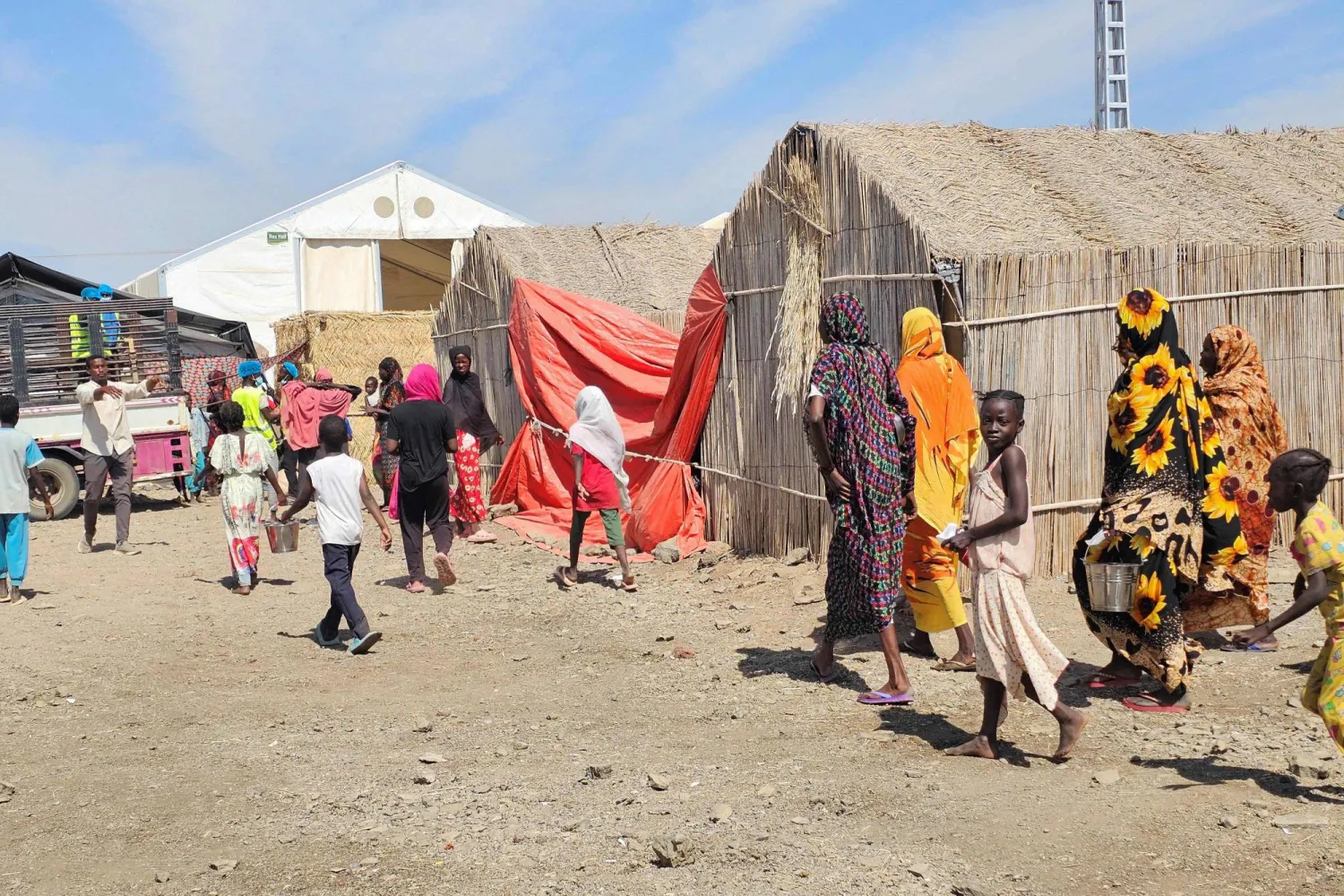Hundreds of thousands of fleeing Gazans sought shelter on Thursday in one of the biggest mass displacements of the war, as Israeli forces advanced into the ruins of the city of Rafah, part of a newly announced "security zone" they intend to seize.
A day after declaring their intention to capture large swathes of the crowded enclave, Israeli force pushed into the city on Gaza's southern edge which had served as a last refuge for people fleeing other areas for much of the war, reported Reuters.
Gaza's health ministry reported at least 97 people killed in Israeli strikes in the past 24 hours, including at least 20 killed in an airstrike around dawn in Shejaia suburb of Gaza City.
Rafah "is gone, it is being wiped out," a father of seven among the hundreds of thousands who had fled from Rafah to neighboring Khan Younis, told Reuters via a chat app.
"They are knocking down what is left standing of houses and property," said the man who declined to be identified for fear of repercussions.
After a strike killed several people in Khan Younis, Adel Abu Fakher was checking the damage to his tent.
"Is anything left for us? There’s nothing left for us. We’re being killed while asleep," he said.
The assault to capture Rafah is a major escalation in the war, which Israel restarted last month after effectively abandoning a ceasefire in place since January.
GAZANS FEAR PERMANENT DEPOPULATION
Israel has not spelled out its longterm aims for the security zone its troops are now seizing. Prime Minister Benjamin Netanayahu said troops were taking an area he called the "Morag Axis", a reference to an abandoned former Israeli settlement once located between Rafah on Gaza's southern edge and the adjacent main southern city Khan Younis.
Gazans who had returned to homes in the ruins during the ceasefire have now been ordered to flee communities on the northern and southern edges of the strip.
They fear that Israel's intention is to depopulate those areas indefinitely, leaving many hundreds of thousands of people permanently homeless in one of the poorest and most crowded territories on earth. The security zone includes some of Gaza's last agricultural land and critical water infrastructure.
Since the first phase of the ceasefire expired at the start of March with no agreement to prolong it, Israel has imposed a total blockade on all goods reaching Gaza's 2.3 million residents, recreating what international organizations describe as a humanitarian catastrophe after weeks of relative calm.
Israel's stated goal since the start of the war has been the destruction of the Hamas group which ran Gaza for nearly two decades and led the attack on Israeli communities in October 2023 that precipitated the war.
But with no effort made to establish an alternative administration, Hamas-led police returned to the streets during the ceasefire. Fighters still hold 59 dead and living hostages which Israel says must be handed over to extend the truce; Hamas says it will free them only under a deal that ends the war.
Israeli leaders say they have been encouraged by signs of protest in Gaza against Hamas, with hundreds of people demonstrating in north Gaza's Beit Lahiya on Wednesday opposing the war and demanding Hamas quit power. Hamas calls the protesters collaborators and says Israel is behind them.
The war began with a Hamas attack on Israeli communities on October 7, 2023 with gunmen killing 1,200 people and taking more than 250 hostages according to Israeli tallies. Israel's campaign has so far killed more than 50,000 Palestinians, Gaza health authorities say.
Rafah residents said most of the local population had followed Israel's order to leave, as Israeli strikes toppled buildings there. But a strike on the main road between Khan Younis and Rafah stopped most movement between the two cities.
Movement of people and traffic along the western coastal road near Morag was also limited by bombardment, said residents.
"Others stayed because they don't know where to go, or got fed up of being displaced several times. We are afraid they might be killed or at best detained," said Basem, a resident of Rafah who declined to give a second name.
Markets have emptied and prices for basic necessities have soared under Israel's total blockade of food, medicine and fuel.
The Palestinian Health Ministry, which is based in the Israeli-occupied West Bank but has nominal authority over hospitals in Gaza, said Gaza's entire healthcare system was at risk of collapse.









